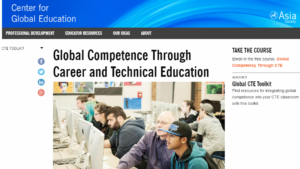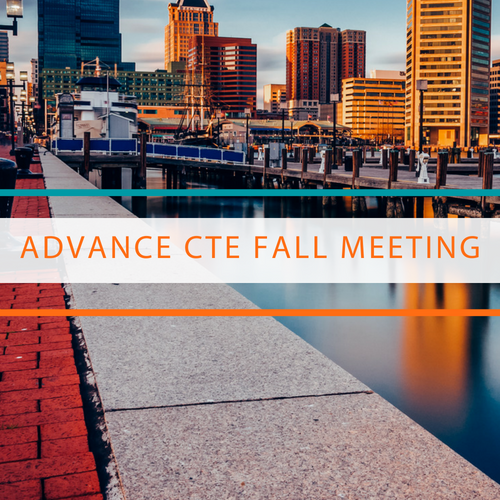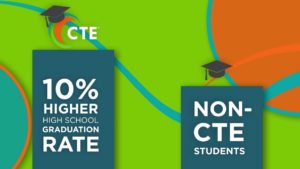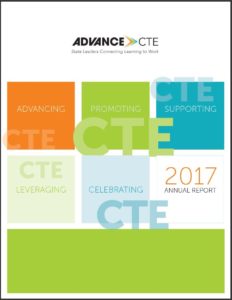During the last week, the President released his budget proposal for Fiscal Year 2020 (FY20), the American Workforce Policy Advisory Board held a meeting and there’s news about the implementation of the Every Student Succeeds Act (ESSA). Read below to learn more.
![]() President’s Budget Proposes Significant Cuts for Education and Workforce Programs
President’s Budget Proposes Significant Cuts for Education and Workforce Programs
On March 11, President Trump released the budget proposal for Fiscal Year 2020 (FY20), which begins October 1. The President’s budget proposal is typically released the first Monday in February, but this year’s partial government shutdown delayed the process. Importantly, the release of the President’s budget proposal formally begins the appropriations process, during which Congress will decide the extent to which they align their funding decisions with the priorities laid out in the President’s budget proposal.
Unfortunately, the proposal includes a 12.5 percent cut overall for the U.S. Department of Education and a 9.7 percent cut overall for the U.S. Department of Labor. Some key programs are highlighted below and the specific levels for each program can be found in the U.S. Department of Education budget summary and the U.S. Department of Labor budget in brief:
- Investments in the Strengthening Career and Technical Education for the 21st Century Act (Perkins V):
-
CTE State Grants: proposed level funding for the Perkins Basic State Grants at the amount provided by Congress in FY19. The President’s budget also includes the recommendation that Congress authorize changes to increase the fees collected for H-1B visas and redirect 15 percent of that revenue to provide an increase in funding for CTE State Grants. However, we are still examining this proposal and at this point, it is unclear if this would be a practical way to ensure more resources for CTE State Grants and how much funding could be realized.
-
National Programs: proposed increase of $12.58 million above the amount provided by Congress in FY19 to support the new Innovation and Modernization grants authorized under Perkins V.
-
- Student Support and Academic Enrichment Grants, authorized under Title IV-A of the Every Student Succeeds Act (ESSA), which can support CTE as part of a well-rounded education: proposed for elimination.
- Supporting Effective Instruction State Grants, authorized under Title II of ESSA, which can support CTE professional development: proposed for elimination.
- Pell Grants: proposed to keep the maximum Pell grant frozen at its current level, rescind $2 billion from the the Pell reserve (the unobligated funds for the program that have been previously appropriated), and expand the access to the Pell grant to short-term programs. Advance CTE is supportive of expanding Pell grants to shorter-term programs as outlined in the JOBS Act, which has bipartisan support.
- State formula grants provided through Title I of the Workforce Innovation and Opportunity Act (WIOA): proposed level funding at the amount provided by Congress in FY19.
- Adult Education and Family Literacy State Grants: proposed decrease of $156.2 million below the level provided by Congress in FY19.
- Apprenticeship grants: proposed level funding at the amount provided by Congress in FY19, noting that these funds should be directed to Industry-Recognized Apprenticeships.
Advance CTE will continue to monitor the appropriations process and will let you know when it is time to contact your members of Congress.
American Workforce Policy Advisory Board Meets
On March 6, the American Workforce Policy Advisory Board held a meeting. As we reported, the board is comprised of 25 members representing the education, business, nonprofit and government fields. During the meeting, Ivanka Trump, Advisor to the President, shared four goals that were discussed during the meeting:
-
“First is to develop a robust campaign to promote multiple pathways to good-paying jobs, dispelling the myth that there is only one path to a successful career.
-
Second, improving the availability of high-quality, transparent, and timely data to better inform students and educators, as well as match American workers to American jobs.
-
Third, modernizing candidate recruitment and training practices to expand the pool of job applicants employers are looking to hire.
-
And finally, measuring and encouraging employer-led training and investments. We are championing and seeking to further private-sector leadership and investment in workforce development.”
Additional remarks from the meeting are now available. Advance CTE will continue to provide updates on the advisory board.
Fourteen States Now Publishing Spending Data per ESSA Requirements
For the first time, the Every Student Succeeds Act (ESSA) requires states to publish school-by-school spending data to illuminate where and how taxpayer dollars are being spent on education. According to an analysis from Georgetown University, 14 states have now made this information public. Many states are still working through the process of collecting and publishing their spending data.
States Mulling Revisions to ESSA Plans
According to EdWeek, five states – New Mexico, Indiana, Michigan, South Carolina, and Wyoming – are considering revisions to their ESSA state plans. Most of the proposed changes involve restructuring the school rating system without significantly altering the accountability indicators.
Kathryn Zekus, Senior Associate for Federal Policy & Austin Estes, Senior Policy Associate


 TOOL: Communicating About Perkins V (
TOOL: Communicating About Perkins V ( l Education (CTE) in Hawai’i serves over
l Education (CTE) in Hawai’i serves over 
 the
the 
